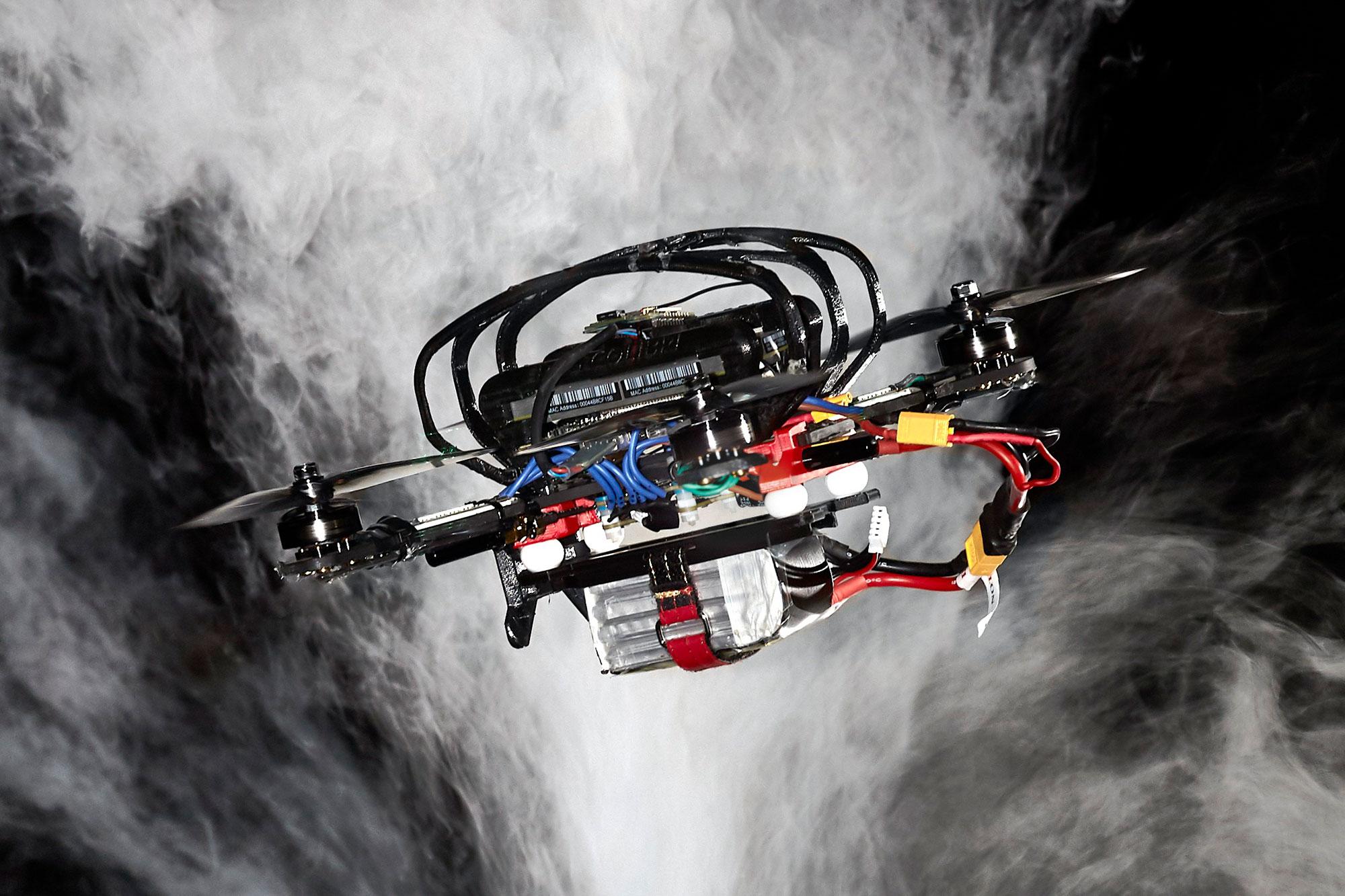Inertial sensors: strength in numbers

Researchers working in the field of navigation and supported by the Swiss National Science Foundation have developed methods that allow several low-cost inertial sensors working in combination to replace a single expensive sensor.
Inertial sensors such as accelerometers and gyroscopes are used nearly everywhere, from smartwatches to submarines, drones, spacecraft, vacuum cleaners and even game controllers. The purpose of these sensors is to indicate the position, speed or direction of an object. Their drawback is their lack of precision, at least when it comes to the low-cost versions used in many devices. However, thanks to support from the Swiss National Science Foundation (SNSF), there may be a way to solve this problem. In a paper published in IEEE Transactions on Signal Processing (*), a team from the University of Geneva reports that networking several inexpensive sensors is a viable alternative to more powerful sensors.
Using all the information
By combining the measurements of several low-cost, individual sensors, the researchers succeeded in obtaining a very precise navigational measurement. “It is as if we had created a virtual sensor, and it is particularly efficient because it uses all the information provided by the individual sensors,” says Yuming Zhang, a PhD candidate in statistics and lead author of the article. These virtual sensors not only offer the same performance as actual sensors but are also less expensive and can be more flexibly configured. They could therefore be used in a number of consumer devices without increasing their cost.
The idea of combining information from different sensors is not new, but until now technical constraints have limited its application: “Sensor measurement errors are very complex to handle individually, and even more so when several sensors are combined,” says Zhang. The team solved the problem using a new signal decomposition approach. This approach makes it possible to understand and deal with errors that affect measurements and to process them using a novel statistical method.
From aerial mapping to finance
According to the researchers, the potential applications of the new technique widely range from aerial mapping using drones to autonomous vehicles. In addition, the ability to optimally combine different sensor technologies could help develop a new generation of global positioning systems.
The findings could also be used in other, more distant fields, such as finance. Investment decisions often take the form of a portfolio mix of securities and financial products designed to achieve a certain goal. “In this field as well, the method we are proposing could be used to create an optimal investment combination that minimizes portfolio volatility,” says Zhang.
Promoting highly qualified researchers
This project, led by Stéphane Guerrier, benefited from the SNSF Professorships funding scheme. SNSF professorships are aimed at highly qualified researchers who aspire to a permanent professorship. The SNSF professorship funding instrument was replaced by Eccellenza in 2018 and Eccellenza was integrated into SNSF Starting Grants in 2022.
Links
- Image for editorial use (JPEG). Caption: Inertial sensors are used almost everywhere.
© CC-BY-NC-ND: Philipp Foehn, University of Zurich - The project in the SNSF Data Portal
- SNSF Twitter feed